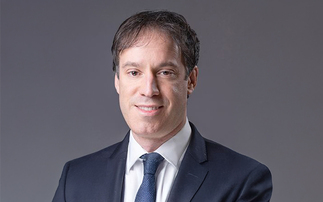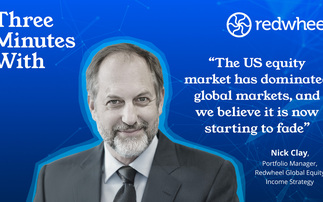Partner Insight: Alex Wright explains how he has honed his value contrarian approach to investing in the Fidelity Special Situations Fund and why the potential to lose money is often lower than in traditional funds
Investing against the tide of popular opinion is a psychologically difficult thing to do. Humans are social animals, and often behave socially when making investment decisions. It takes a particular mindset and a highly disciplined approach to execute a contrarian investment process successfully.
According to Fidelity Portfolio Manager Alex Wright, the chief advantage to this approach is that, if done well, it improves the balance of risks and rewards by limiting your downside and maximising potential upside.
It is a philosophy that underpins the Fidelity Special Situations Fund, which follows a value contrarian focus. The fund, which Wright has managed since 2014, aims to invest specifically in those UK companies that he believes are trading below their intrinsic worth and where there are potential catalysts that could change the prevailing negative view towards them.
He explains: "The fund's philosophy generally means investing in stocks that have been through a tough period and where there is overriding negativity towards the company from sell-side analysts. Whilst other investors may avoid the stock because of this, we try to understand if the consensus is wrong. Sometimes our own research can reveal a strong potential for recovery that others are overlooking or underestimating. However, if things don't improve, the potential to lose money is limited due to the low starting valuation."
Wright follows a bottom-up approach to choose the 100 or so stocks that form the portfolio. Specifically, he invests using a three-stage cycle - where stocks enter the portfolio at stage one having been through a tough period resulting in typically low valuations with very negative sentiment.
Crucially, he looks to understand if that negative sentiment can be reversed if a recovery was to take place, undertaking a lot of due diligence around what is going on at the company in this stage to decipher the possibilities.
"If things do start to turn and change becomes apparent at a company, the stock moves from stage one into stage two. Here we will see the stock begin to perform well, earnings should improve, and other investors tend to become more and more interested in the company," he says.
Click here to read more about Wright's disciplined investment approach and how it offers him a solid grounding to produce superior returns for clients over the longer term.












